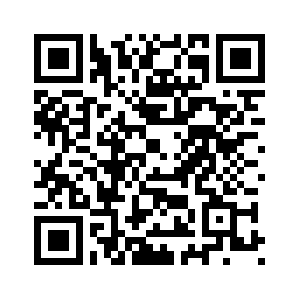WASHINGTON, Feb. 20 (Xinhua) -- U.S. President Donald Trump and Ukrainian President Volodymyr Zelensky have been trading barbs following a high-level U.S.-Russia meeting over the Russia-Ukraine conflict held in Saudi Arabia on Tuesday.
The meeting, attended by senior Russian and U.S. officials, including top diplomats from both countries, agreed on charting a path toward ending the conflict. However, Ukraine was not invited.
In response, Zelensky postponed a scheduled visit to Saudi Arabia on Wednesday, emphasizing that "negotiations should not take place behind our backs."
His reactions prompted a wave of verbal attacks from Trump, triggering a rare public back-and-forth between the leaders of two countries that have been steadfast allies since the conflict began three years ago.
WHAT DID THEY SAY?
Hours after the U.S.-Russia talks on Tuesday, Trump told reporters at his Mar-a-Lago estate in Florida that he was "much more confident" that the conflict would end.
When asked about Ukraine's absence at the negotiating table, Trump responded, "I hear that they're upset about not having a seat. Well, they've had a seat for three years and a long time before that. This could have been settled very easily."
He further suggested that Kiev bore responsibility for starting the conflict, a stark departure from the long-standing stance of the United States and its allies. "You should have never started it. You could have made a deal," Trump added.
Trump also claimed that Zelensky's approval rating had plummeted to "4 percent" and called for new presidential elections in Ukraine as Zelensky's mandate has long expired.
Ukraine postponed its presidential election that was scheduled for 2024.
Zelensky responded sharply to Trump's comments, accusing him of falling for Russian "disinformation."
"I believe that the United States helped (Vladimir) Putin break out of years of isolation," Zelensky told reporters on Wednesday, delivering some of his strongest criticism yet of the new U.S. administration.
He also urged Trump's team "to be more truthful" in their statements.
The war of words further escalated when Trump labeled Zelensky a "Dictator without Elections" on his social media platform, Truth Social, later on Wednesday.
"Zelensky better move fast or he is not going to have a country left," Trump wrote.
In the same post, Trump also referred to Zelensky as "a modestly successful comedian" who "talked the United States into spending 350 billion dollars to go into a war that couldn't be won, that never had to start," and "will never be able to settle" without the United States and himself.
Zelensky pushed back by saying that the United States had given 67 billion U.S. dollars in military aid and 31.5 billion dollars in support for Ukraine's budget.
He also pointed out that his approval rating stands above 50 percent, as shown in a recent poll conducted by the Kiev International Institute of Sociology.
HOW DID EUROPE RESPOND TO IT?
European leaders have been scrambling to seek a coordinated response in the face of the sudden pivot of U.S. foreign policy amid its warmer ties with Russia, worrying about the potential impact on European security.
French President Emmanuel Macron has convened two emergency meetings this week in Paris, attended by senior officials from over a dozen EU countries and their NATO allies.
The second meeting, which concluded on Wednesday, agreed on a new round of sanctions against Russia, according to media reports.
In a post on social media platform X, Macron emphasized that any peace deal should take into account Ukraine's rights and European security concerns.
"The position of France and its allies is clear and united. We wish for peace in Ukraine that is lasting," Macron wrote after the gathering on Wednesday.
In an earlier interview with French regional newspapers, Macron warned that Russia poses an "existential threat" to Europe, urging nations to remain vigilant. He even hinted at the possibility of sending limited forces to Ukraine, though he clarified that such actions would be confined to non-combat zones.
British Prime Minister Keir Starmer spoke with Zelensky on Wednesday, assuring him of the UK's backing and telling him it was "perfectly reasonable" for Ukraine to "suspend elections during wartime as the UK did during World War II."
However, Starmer also voiced support for U.S.-led efforts to achieve a lasting peace in Ukraine, according to a Downing Street spokesperson.
WILL THIS TIT-FOR-TAT LAST LONG?
Tymofiy Mylovanov, president of Kyiv School of Economics and former economic minister under Zelensky, said on X that Zelensky is "right to push back on Trump with facts and refer to the Russian disinformation bubble, but also right not to go personal on him."
He noted that it is "a tough balancing act" for Zelensky.
Jack Keane, a retired four-star U.S. Army general, told Fox News that he believes the dispute between Trump and Zelensky is expected to be "short-lived," and it was partly sparked by the Ukrainian president's "overreaction" to Ukraine's absence from the Saudi talks.
"I think this debate, this lashing out at each other is temporary. I don't believe it's long-lasting," Keane told "The Story" of Fox News, "because our common interests are at stake here, and they will come together and work something out here."
In his nightly video address on Wednesday, Zelensky still emphasized the importance of maintaining a good relationship with Washington, stressing the need for constructive cooperation with the United States.
"Together with America and Europe, peace can be more secure; and that is our goal," he said, reiterating Ukraine's desire to end the conflict "from the very first second."
He also said he would meet with U.S. Special Envoy for Ukraine Keith Kellogg on Thursday, expressing his willingness for "constructive" work with the United States. ■



